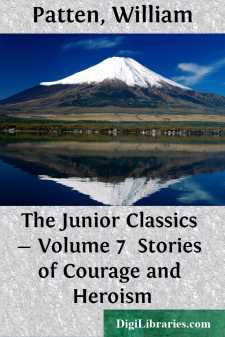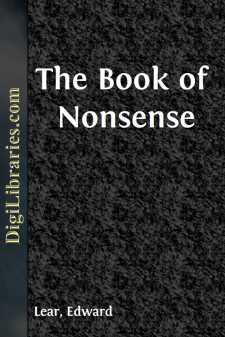Juvenile Nonfiction
- Animals 10
- Art 1
- Biography & Autobiography 2
- Boys & Men 1
- Business & Economics 3
- Cooking & Food 2
- Gardening 1
- General 32
- Girls & Women 7
- History 2
- Holidays & Celebrations 1
- Lifestyles 79
- Literary Criticism & Collections 5
- Nature 11
- Readers 40
- Religion 4
- Sports & Recreation 1
Juvenile Nonfiction Books
Sort by:
MY DEAR FRIEND: I received yours yesterday morning together with the Prussian, papers, which I have read with great attention. If courts could blush, those of Vienna and Dresden ought, to have their falsehoods so publicly, and so undeniably exposed. The former will, I presume, next year, employ an hundred thousand men, to answer the accusation; and if the Empress of the two Russias is pleased to argue...
more...
MY DEAR FRIEND: It is now above a fortnight since I have received a letter from you. I hope, however, that you are well, but engrossed by the business of Lord Albemarle's 'bureau' in the mornings, and by business of a genteeler nature in the evenings; for I willingly give up my own satisfaction to your improvement, either in business or manners. Here have been lately imported from Paris...
more...
by:
Aletta E. Marty
Importance of Oral ReadingThere are several reasons why every boy or girl should strive to become a good reader. In the first place, good oral reading is an accomplishment in itself. It affords a great deal of pleasure to others as well as to ourselves. In the second place, it improves our everyday speech and is also a preparation for public speaking; for the one who reads with distinctness and an...
more...
by:
William Patten
During the time when Pericles was at the head of the state at Athens he spared no pains and no money to make the city beautiful. He himself was a lover and patron of the arts, and he was determined that Athens should become the very centre of art and refinement, and that she should have splendid public buildings and splendid sculptures and paintings. So he gathered round him all the great sculptors and...
more...
by:
Nixon Waterman
CHAPTER ICHOOSING THE WAY What can be expressed in words can be expressed in life.—Thoreau.Yes, my good girl, I am very glad that we are to have the opportunity to enjoy a friendly chat through the medium of the printed page, with its many tongues of type. It is faith in something and enthusiasm for something that makes a life worth looking at.—Oliver Wendell Holmes. Just here I have a favor to ask...
more...
by:
Michael Clarke
I. TROY BEFORE THE SIEGE. Design by Burne-Jones.That part of Asia Minor which borders the narrow channel now known as the Dar-da-nellesÐÐÐâ, was in ancient times called TroÐÐÐâas. Its capital was the city of Troy, which stood about three miles from the shore of the Æ-geÐÐÐâan Sea, at the foot of Mount Ida, near the junction of two rivers, the...
more...
LESSON XLVI NEW WORDS.sobathsickpleasetubwrapshawlsis'terNow, Ned, please do not put my kitty into the bath tub. Yes, sister, I must give her a bath. Here is the bath tub with some nice warm water. But, Ned, kitty will get sick if you put her into the water. She will take cold. No, I will wrap her well in the big shawl, and then she can not take cold. So Ned gave kitty a bath, and then put her...
more...
CHARACTER. Everything in the practical conduct of life depends upon character. What is character? What do we mean by it? As when we say such a man is a bad character, or a good character, or when we use the words, "I don't like the character of that man." By character we mean what a man really is, at the back of all his actions and his reputation and the opinion the world has of him, in...
more...
by:
John McGovern
Then methought the air grew denser, perfumed from an unseen censer,Swung by seraphim whose foot-falls tinkled on the tufted floor. —Edgar Poe. golden censer swings in the Temple of Life, making holy its halls and grateful its corridors. This fountain of our well-being is Duty. There is little true pleasure in the world which does not flow, either directly or remotely, from its depths. It shall be...
more...
by:
Edward Lear
1. There was an Old Man with a beard,Who said, "It is just as I feared!—Two Owls and a Hen,Four Larks and a Wren,Have all built their nests in my beard!" There was a Young Lady of Ryde,Whose shoe-strings were seldom untied;She purchased some clogs,And some small spotty dogs,And frequently walked about Ryde. 3. There was an Old Man with a nose,Who said, "If you choose to suppose,That my...
more...











